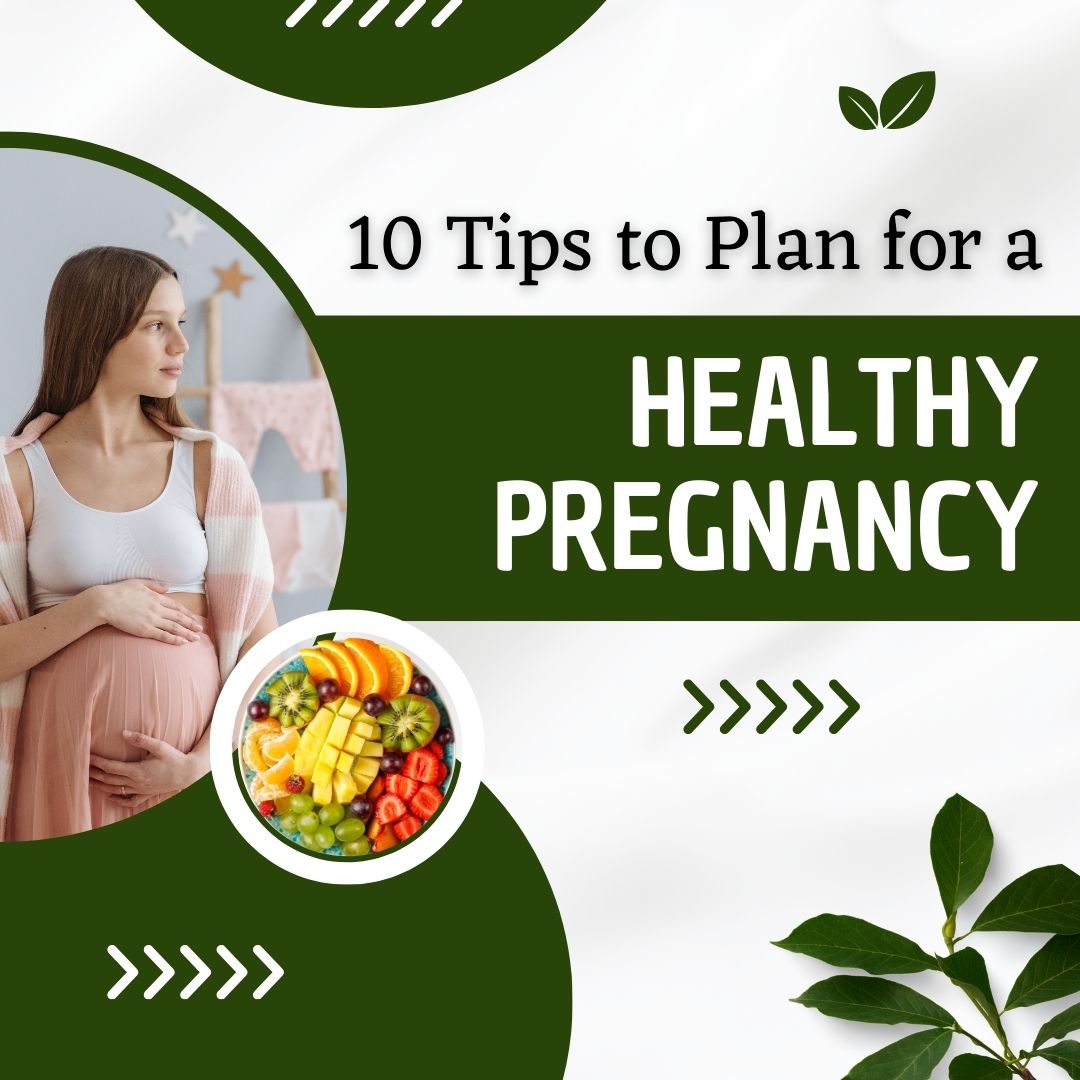Are you willing to have a pregnancy? If you wish to plan the conception, you must make several preparations. These include talking to your physician about medical history and genetics, checking vaccination status, having a healthy diet, including certain supplements, having intercourse at the right time, lifestyle changes, and more. Let’s go through all these women’s healthcare aspects so that you can successfully get pregnant.
Reviewing Your Health Before Pregnancy
It is important to evaluate your health even if you have had pregnancies in the past. Here is more about it:
1. Diagnostics Tests: A pre-checkup for pregnancy is essential. This may include a pelvic exam to note the health of the vagina, uterus, cervix, and ovaries. The physician may recommend blood tests to understand if there are any sexually transmitted diseases or infections, and the blood type of parents-to-be. A pap smear, a sample of cervical cells can track cancer, while a physical evaluation may check for blood pressure, breathing and pulse rate, body weight, and temperature.
2. Family and Personal Medical History: Share with your physician if you have any chronic conditions that may impact the pregnancy. These include high blood pressure, allergies, epilepsy, anemia, diabetes, etc. Also, inform about previous surgeries, miscarriages (if any), current medications, etc. Similarly, assessing paternal and maternal medical history can help detect if there is a risk of any health issue passing to the child.
3. Vaccinations: Since you are planning for a pregnancy, take the vaccination for varicella (chickenpox) and rubella (German measles) a month before conceiving. Both these diseases during pregnancy can lead to birth defects and loss of pregnancy. Also, you cannot get vaccinated for these two if pregnant. Also, stay updated on the annual flu vaccine.
4. Genetics: Get a genetic screening before pregnancy. The baby can inherit certain genetic disorders such as Tay-Sachs disease, sickle cell anemia, cystic fibrosis, etc. Your healthcare provider will guide you about the necessary blood tests and diagnostics to identify any faulty genes on the mother’s and father’s end.
5. Exposure to Pathogens: Viral infections, especially COVID-19 and Zika, cause serious health issues in the mother and her child. Thus, understanding if there has been any virus infliction can help recover, so that you can prepare for a healthy pregnancy.
Preparing Yourself for a Pregnancy
Work on your health and body to have a normal pregnancy. Here are a few tips to follow to ensure that:
1. Following a Balanced Diet, Limiting Alcohol, and Smoking: Include nourishing foods in your diet to take care of yourself and the baby. Add vegetables, fruits, lean proteins, low-fat dairy, and whole grains. Keep away from fatty and highly processed foods. Do not take much caffeine, so limit your coffee intake. Also, avoid drinking alcohol as it can impact your fertility. The same goes for smoking, otherwise, it may increase the risks of lower birth weight, premature birth, and fetal issues.
2. Exercising and Managing Weight: Maintaining your body through regular exercise will keep at bay several medical problems. After all, excess weight can reduce your chances of conceiving. So, to manage a proper weight and tackle diabetes, high blood pressure, etc., switch to an exercise routine, including yoga, aerobics, and cardio. Similarly, you need to ensure that you do not go underweight as it can even cause inadequate weight for the baby.
3. Add Vitamins: Talk to your physician about prenatal vitamins. You can start with 400mcg of folic acid daily to reduce birth defect risks in the spinal cord and brain. Folic acid deficiency is not good for women’s healthcare and results in neural tube defects for the baby. This is a B vitamin that you must begin a month before pregnancy. Plan to add other vitamins and nutrients accordingly as per the advice of your healthcare provider.
4. Prevent Infections: Fighting off the risks of catching an infection is important when planning for a pregnancy. Wash your hands with soap and water frequently. Avoid contact with cat litter or animal feces as these contain viruses and pathogens. Keep your distance from anyone who is sick. Do not eat raw eggs and undercooked food, especially meat. Similarly, do not expose yourself to chemical substances and toxins such as radiation, pesticides, etc.
5. Falling Pregnant: Now, you must know when to have unprotected intercourse to conceive. You may get pregnant during ovulation. It is when ovaries produce a mature egg, which the sperm mates to cause a fertilization. Ovulation starts 14 days before the initial day of your next menstrual cycle (period). This duration for a cycle is 28 days on average. However, some women can have a longer or shorter cycle. A mature egg survives for 12 to 24 hours and the sperm should fertilize it then.
To Conclude
Family planning is the first step to a successful pregnancy. Speak with your physician about tracking your health status and diagnostic tests to plan for a healthy pregnancy. Simultaneously, take care of your body and diet, ward off risks of infections and diseases, and have intercourse during the fertile period to conceive.


